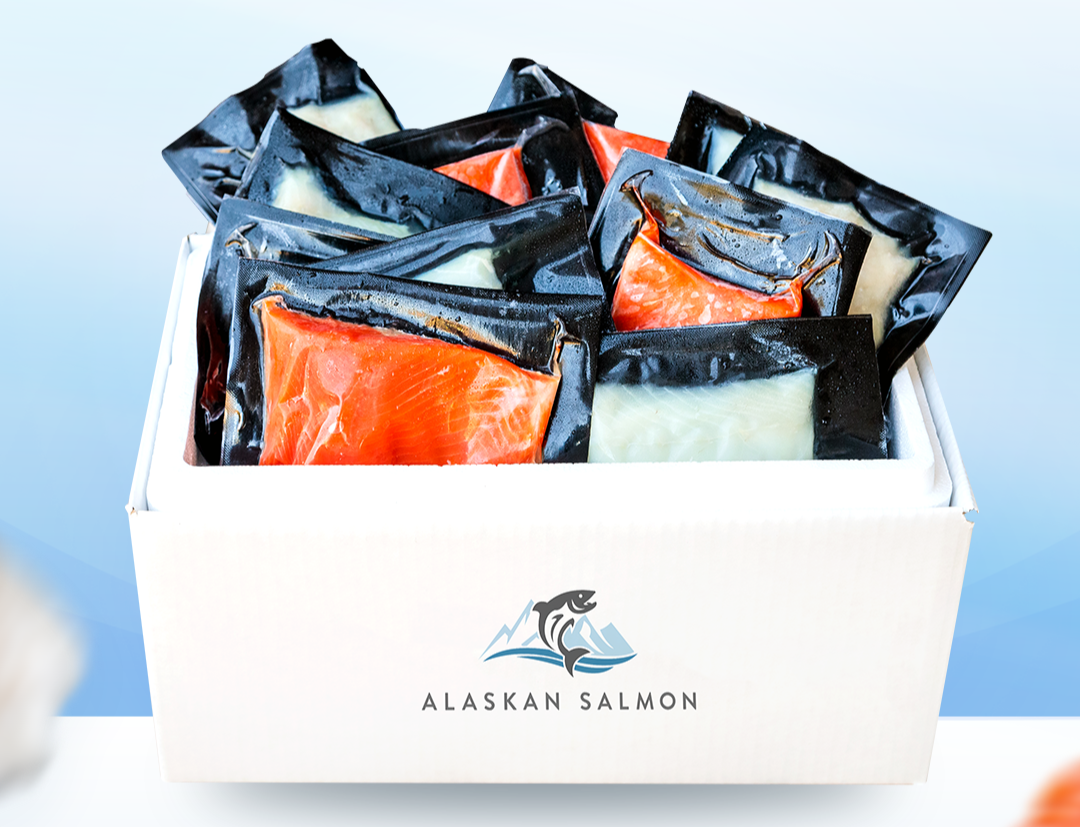Can You Eat Raw Salmon?
Updated on May 11, 2021
Can salmon be eaten raw? This is a question that has intrigued food enthusiasts and health-conscious individuals alike.
Raw salmon, often enjoyed in the form of sushi or sashimi, presents a unique culinary experience and promises a range of potential health benefits. With its rich reserves of omega-3 fatty acids, raw salmon is hailed as a powerhouse of nutrients, supporting heart health, brain function, and reducing inflammation.
However, the decision to consume raw salmon requires careful consideration of food safety, as the fish can harbor bacteria and parasites that pose potential health risks.
Can You Eat Raw Salmon?
Generally, raw salmon can be safe to eat if it has been properly handled, stored, and prepared using high-quality, fresh fish. The risk of consuming raw salmon lies in potential bacterial and parasitic contamination. To reduce these risks, ensure that the fish is from a reputable source, labeled as sushi-grade, and has been properly frozen to kill any potential parasites.
If you are not confident in the quality or handling of the fish, it's generally safer to cook it thoroughly to minimize any potential health risks. Cooking salmon at the recommended temperature of 145°F (63°C) helps ensure that any harmful parasites or bacteria are eliminated.
Who Can’t Eat Raw Salmon?
There are certain groups of people who are more vulnerable to the risks associated with consuming raw salmon or any raw fish. These include:
- Pregnant women: Raw salmon can potentially contain harmful bacteria and parasites that can affect the health of the mother and the unborn baby.
- Young children: Children, especially those with developing immune systems, are more susceptible to foodborne illnesses caused by bacteria or parasites. It's generally recommended to avoid giving raw fish to young children.
- Elderly individuals: Older adults may have weakened immune systems, making them more susceptible to foodborne infections. It's advisable for them to consume properly cooked fish to reduce the risk of illness.
- People with compromised immune systems: Individuals with conditions or medical treatments that weaken their immune system, such as HIV/AIDS, cancer, or organ transplant recipients, should avoid consuming raw fish due to the higher risk of infections.
- Individuals with certain health conditions: People with liver disease or other underlying health conditions that may impair their ability to fight off infections should exercise caution when it comes to consuming raw fish.
It's important to note that the information provided here is general advice, and individual circumstances may vary. If you have specific health concerns or dietary restrictions, it's recommended to consult with a healthcare professional or a registered dietitian for personalized guidance.
How to Eat Raw Salmon Safely
To eat raw salmon safely, it's important to follow these guidelines:
- Choose sushi-grade salmon: Purchase salmon that is specifically labeled as sushi-grade or sashimi-grade. These fish have undergone appropriate handling and processing to minimize the risk of parasites. It's best to buy from trusted sources that specialize in providing high-quality seafood.
- Freeze the salmon: If you plan to prepare raw salmon at home, freezing it beforehand can help eliminate parasites. The FDA recommends freezing fish at -4°F (-20°C) or below for at least 7 days to kill any potential parasites. This freezing process should be done before the fish is consumed raw.
- Handle and store the salmon correctly: Keep the raw salmon refrigerated at a temperature below 40°F (4°C) until you are ready to use it. Practice good food safety measures by preventing cross-contamination with other foods, using clean utensils and surfaces, and storing the fish in sealed containers to avoid any potential contamination.
- Consume only fresh salmon: If the fish appears slimy, has a strong odor, or the flesh looks discolored, it may indicate spoilage. It's best to discard any salmon that doesn't seem fresh.
- Practice proper hygiene: Wash your hands thoroughly before handling raw salmon. Use separate cutting boards and knives for raw fish to prevent cross-contamination with other foods. Clean and sanitize all utensils and surfaces that come into contact with the raw fish.
- Visually inspect the salmon: Before consuming the raw salmon, visually inspect it for any visible signs of parasites or abnormalities. While this step is not foolproof, it can help identify any obvious issues.
Remember, even with these precautions, there is always a small inherent risk associated with consuming raw fish. If you are unsure or have specific health concerns, it's advisable to consult with a healthcare professional or a registered dietitian before consuming raw salmon or any raw seafood.
Frequently Asked Questions
Is raw salmon healthier than cooked salmon?
Raw salmon is not necessarily healthier than cooked salmon. While raw salmon is rich in nutrients and low in calories, it can harbor bacteria, pathogens, and an enzyme that destroys thiamine, essential in energy metabolism and nervous system health. Only eat raw salmon sourced responsibly and stored properly.
What does raw salmon taste like?
Raw salmon has a buttery taste that melts in your mouth because of its high fat content. Unlike most other raw fish, raw salmon is sweeter and does not boast the signature salty marine flavor in other species.
Do I need to freeze raw salmon before eating it?
Yes, freezing raw salmon before consumption is recommended to eliminate potential parasites. The FDA recommends freezing fish at a temperature of -4°F (-20°C) or lower for at least 7 days to kill any parasites. This process should be done before preparing sushi or sashimi.
What is the difference between sushi-grade and regular salmon?
Sushi-grade salmon typically meets higher quality and safety standards compared to regular salmon. Sushi-grade fish has been handled, stored, and frozen under specific conditions to reduce the risk of parasites and bacterial contamination. Regular salmon may not have undergone these specific processes and might not be safe to eat raw.
Summary
Compared to other meats, salmon is often safe to consume raw. However, eating raw salmon isn’t entirely risk-free, as it can harbor bacteria and parasites if not sourced responsibly. While you can eat raw salmon, consuming undercooked salmon can be dangerous.
In addition, you shouldn’t store raw salmon for too long. The best way to consume raw salmon is fresh!
If you’re itching to try delicious salmon raw, grab our wild sockeye salmon while it’s available.








